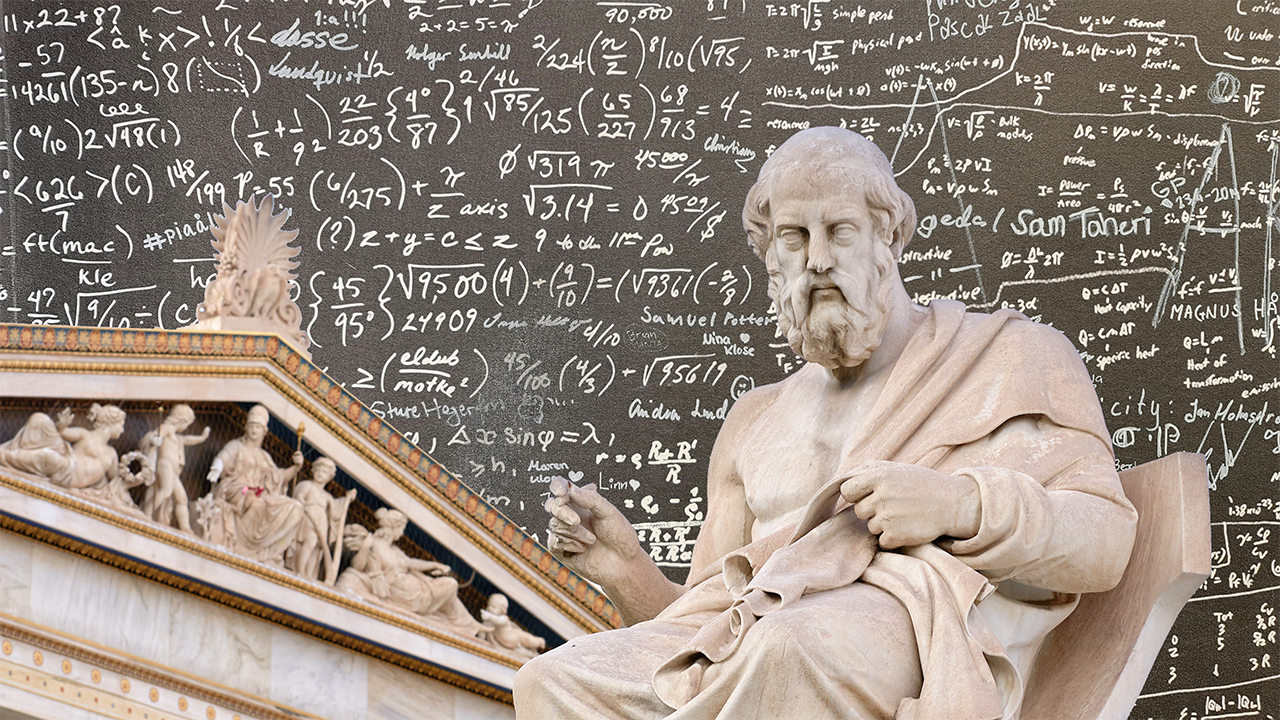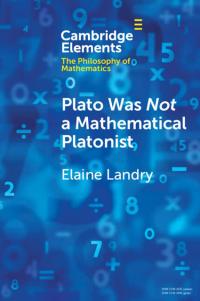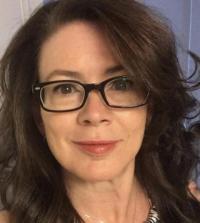
Philosopher Draws Insights From Plato to Argue What Makes Math Real
If a tree falls in the forest, does it make a noise? For UC Davis philosopher Elaine Landry, this thought experiment is one way to think about what mathematicians and physicists assume is real when they solve problems.
Some, she said, believe that numbers, vectors and other abstract objects in mathematics are real in the sense that they really do exist out in the world. Others claim that these so-called objects are just ideas and don’t really exist at all.
“If a tree falls in the forest, does it make a noise?” said Landry. “The realist will say yes, it does because noises are independent of us. The non-realist will say no, it doesn't because noises are phenomenal experiences, so that they’re ideas in us. I want to break out of those poles.”
In a research paper and in her book Plato Was Not a Mathematical Platonist, Landry, professor and department chair of philosophy in the College of Letters and Science, argues that Plato, the ancient Greek philosopher born over 2,400 years ago, shows a better way to think about what’s real in mathematics.
Separating being from method
In mathematics, said Landry, the ability to use objects like numbers and other abstract objects to solve problems seems to come with strings attached. These strings, however, are a consequence of assuming a false dichotomy: Either we discover these independently existing objects or we create them so they depend on us.

Landry writes that Plato’s ideas written thousands of years ago show another way to think about how mathematics works. Rather than arguing over whether numbers and other objects in mathematics exist independently of us, Landry’s reading of Plato shows that it’s enough to treat those objects as if they exist for methodological purposes — that is, for the sake of being able to solve problems.
“We're still having debates about whether mathematical objects exist or don't exist, whether they're discovered or created,” said Landry. “What I'm saying is the create/discover debate is a false debate.”
At first glance, Landry’s argument for an “as-ifist” approach to mathematical objects may seem like a subtle shift, but it’s as radical as the difference between studying a tree’s leaf, bark and branches individually and studying the system of how they contribute to the tree’s life.
Instead of focusing on the existence or non-existence of objects of mathematics — numbers, vectors and other objects — Landry’s as-ifist approach focuses on the method of mathematics.
From philosophy to the physics of the real
The implications of Landry’s argument are far from abstract. In fact, they ground the work of mathematicians and physicists in the fundamental purpose of science, which is to describe the world as it is.

For example, she said, physicists use mathematics to describe how the world around us actually works. Mathematics gives physicists access to understanding phenomena in the real world by making it at least mathematically accessible.
However, the mathematics for Newtonian mechanics or non-Euclidean geometries used in space-time theories, for example, might not always accurately represent the real world that physicists who use those theories aim to understand.
“Sometimes we find that the mathematics actually predicts outcomes in the physical world,” said Landry, “but sometimes the real world pushes back and we need new mathematics to solve these physical problems. The task of scientists, unlike that of mathematicians, is to grasp the things really existing out there.”
As a philosopher of mathematics, Landry regularly collaborates with mathematicians to build out the theoretical foundations of their field. She herself studied mathematics as an undergraduate and graduate student. Today, she teaches students who, like her, have questions about the basic concepts that make their work possible.
“It's the students who come from the sciences and who think this will be a joke,” said Landry. “They hang on because they didn't know this area of study existed and it's exciting. They're the people who, like me, had those ‘why’ questions that no one ever had the time to answer.”
